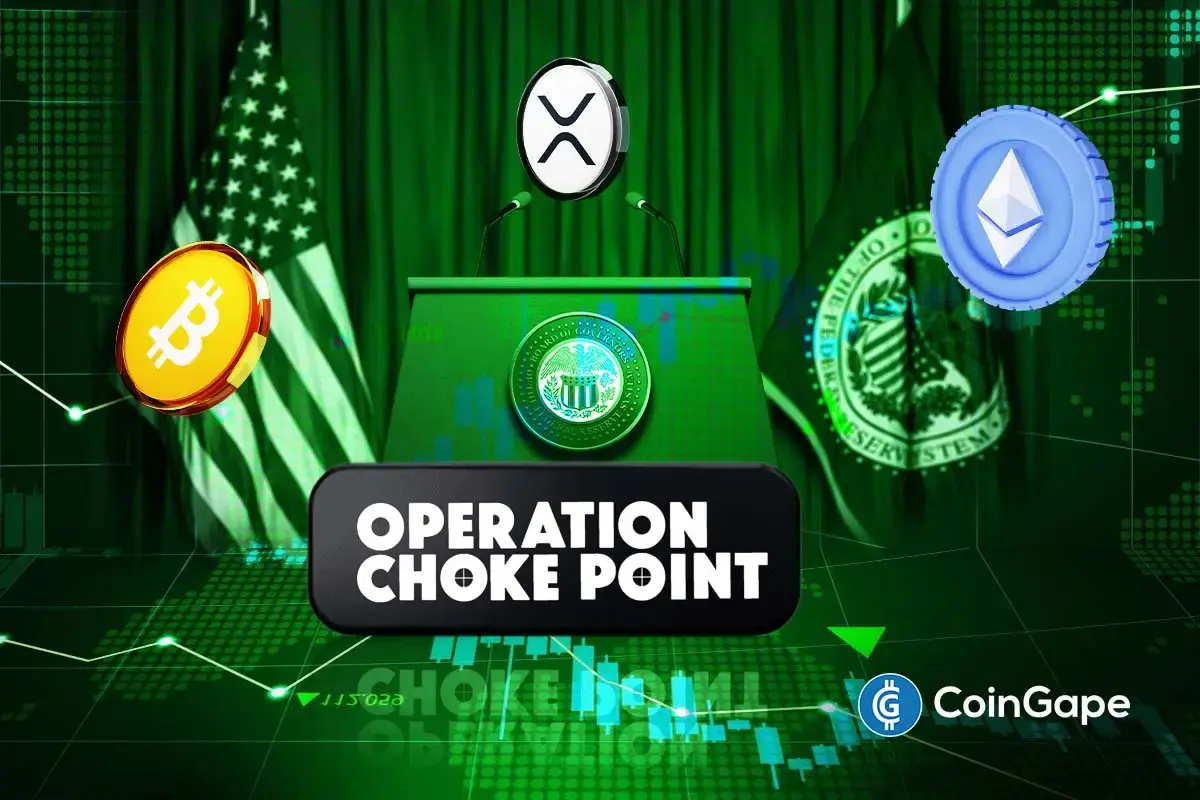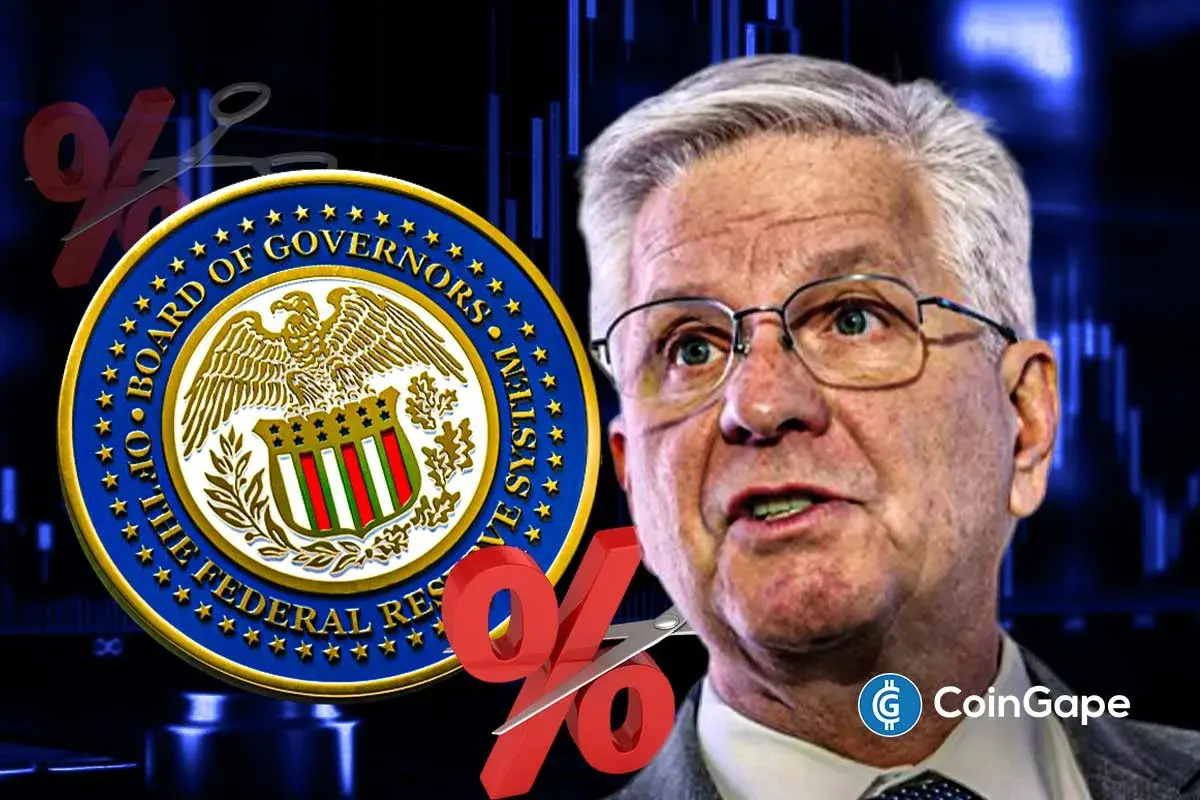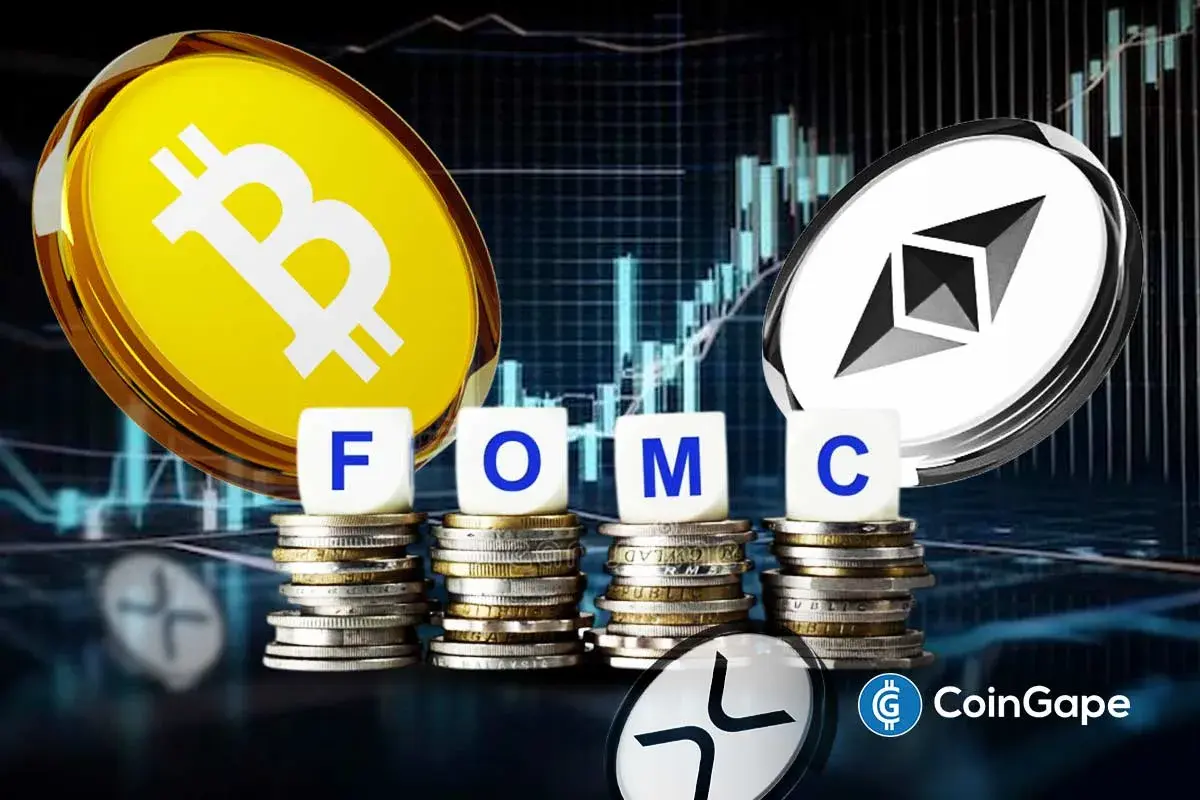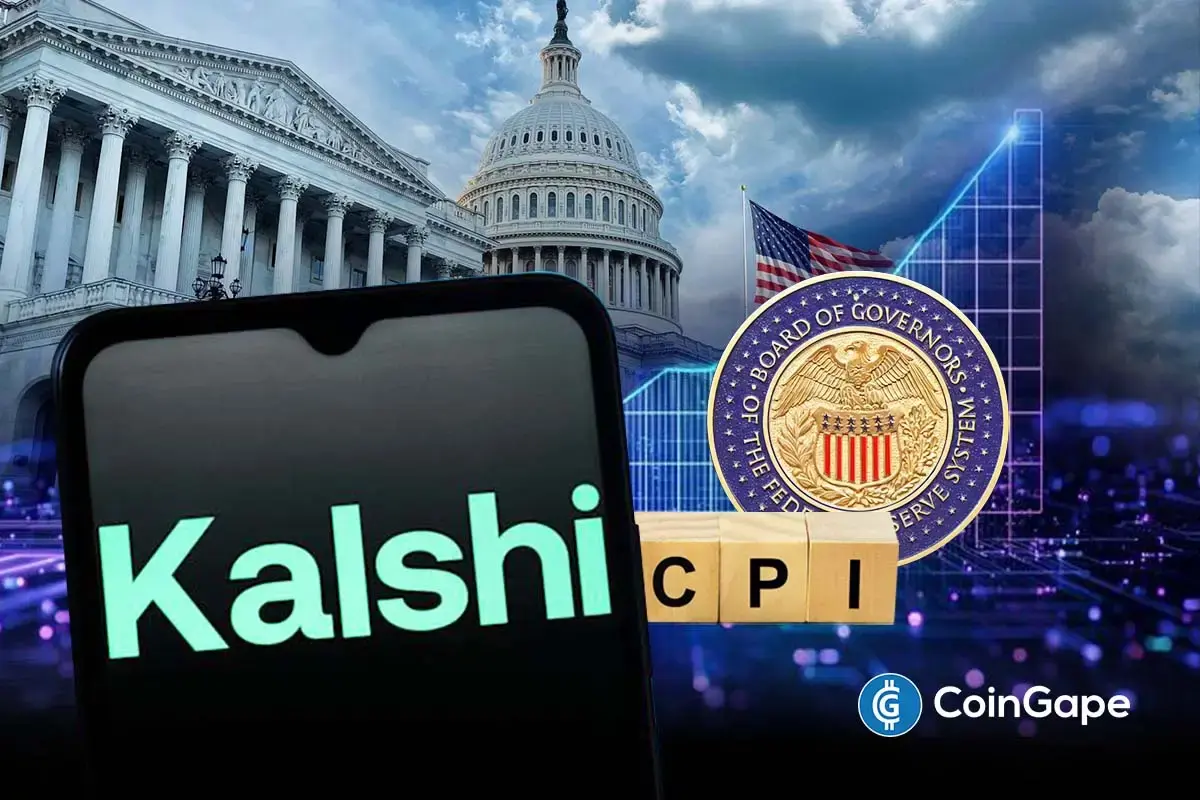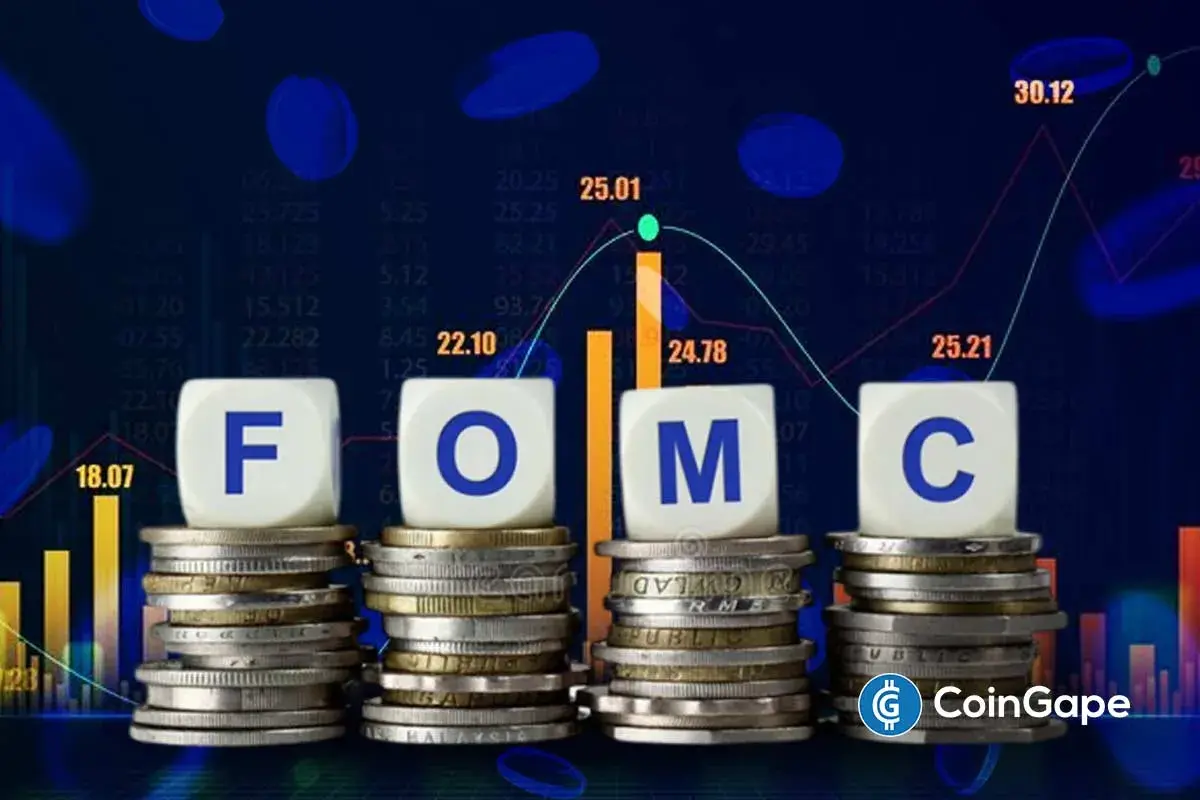Jerome Powell Says Interest Rate Cut Possible in 2025

Highlights
- Powell signals no immediate rate cuts, but 2025 adjustments remain possible based on inflation and tariff impacts.
- Powell dismisses concerns over the dollar's decline, reaffirming its dominance in the global financial system.
- Peter Schiff critiques Fed policies, warns of stagflation and hyperinflation risks from prolonged low-interest rates.
Federal Reserve Chair Jerome Powell has indicated that while the U.S. central bank is not planning immediate interest rate cuts, the possibility remains on the table for 2025, depending on economic conditions.
Powell’s remarks came during his testimony before the House Financial Services Committee, offering insights into the Fed’s cautious approach as it monitors inflation, tariffs, and the overall health of the economy.
Jerome Powell Cautious Approach on Interest Rates
Jerome Powell indicated that while the Fed is not considering an interest rate cut at the next meeting, the situation could change in 2025 depending on inflation data. He emphasized that the central bank requires more information, particularly regarding the impact of tariffs on inflation, before making any decisions on reducing rates.
“We are well positioned to wait to learn more about the likely course of the economy before considering any adjustments to our policy stance,” Powell explained.
The Fed has been closely monitoring inflationary trends, especially as higher import tariffs, which were imposed in previous years, may have long-term effects. Powell pointed out that the June and July inflation figures would be crucial in determining how tariffs might influence prices. The Fed remains “perfectly open” to the possibility that the impact may be less than expected.
Tariff Impact and Inflation Data
According to Jerome Powell, the U.S. central bank must wait for more data on how tariff increases are feeding into inflation.
“The data will soon show the impact of inflation, and rate cut decisions will be based on that,” he said.
As tariff hikes from previous years come into effect, Powell acknowledged that inflation could either rise or be contained depending on how these changes are reflected in future data.
He also highlighted that while inflation is expected to increase over the course of the year, as predicted by most economists, the central bank would need to ensure that its policies do not worsen the situation. The Fed’s role, Powell reiterated, is to manage inflation, not to endorse or criticize policies such as tariffs, which have a direct impact on economic conditions.
Dollar’s Strength Remains Unchallenged
Despite concerns regarding the potential impact of tariffs on the U.S. economy, Jerome Powell reaffirmed the strength of the dollar. In response to questions about the dollar’s status as the global reserve currency, Fed Chair Powell dismissed any concerns about the dollar losing its position.
“These narratives of decline are premature and a bit overdone,” Powell stated. He explained that the volatility observed in the Treasuries market in April did not harm the dollar’s position, and it continues to play a crucial role in global financial systems.
Beyond inflation and tariffs, Fed Chair Jerome Powell was also asked about other factors affecting the U.S. economy, including fiscal policies and immigration. While he avoided specific comments on tax and immigration policy, he reiterated concerns about the U.S. borrowing trajectory. Powell acknowledged that the current fiscal path is unsustainable, adding that it is difficult to pinpoint exactly when the country would hit a tipping point regarding its debt burden.
Peter Schiff Criticizes Jerome Powell Approach
Economist Peter Schiff has been vocal in his criticism of the Federal Reserve’s policies, particularly its handling of interest rates. Schiff argues that the Fed’s prolonged low-interest-rate policies have contributed to economic instability. He warns that the U.S. economy may be heading toward a crisis more severe than the 2008 financial meltdown. Schiff attributes this grim outlook to the Federal Reserve’s prolonged low-interest-rate policies and warns of stagflation, hyperinflation, and an exodus of global investors from U.S. markets.
Schiff contends that inflation pressures stem from more than just recent economic challenges. Instead, they are the product of over a decade of artificially low interest rates. “All of the inflation chickens that the Fed has been releasing for more than a decade are coming home to roost,” Schiff said. He dismissed claims that tariffs are a primary driver, pointing instead to the Fed’s monetary policy.
Schiff predicts the U.S. will experience a mix of recession and high inflation. He also warned of the risk of hyperinflation if current policies persist.
“We’re looking at much higher inflation happening at the same time as a deepening recession,” Schiff said.
Play 10,000+ Casino Games at BC Game with Ease
- Instant Deposits And Withdrawals
- Crypto Casino And Sports Betting
- Exclusive Bonuses And Rewards

- Crypto Market Update: Top 3 Reasons Why BTC, ETH, XRP and ADA is Up
- Crypto News: Bitcoin Sell-Off Fears Rise as War Threatens Iran’s BTC Mining Operations
- U.S.–Iran War: Monday Crypto Crash Odds Rise As Pundits Predict Oil Price Spike
- US-Iran War: Reports Confirm Bombings In UAE, Bahrain and Kuwait As Crypto Market Makes Recovery
- XRP Price Dips on US-Iran Conflict, But Capitulation Signals March Rebound
- Bitcoin And XRP Price As US Kills Iran Supreme Leader- Is A Crypto Crash Ahead?
- Gold Price Prediction 2026: Analysts Expect Gold to Reach $6,300 This Year
- Circle (CRCL) Stock Price Prediction as Today is the CLARITY Act Deadline
- Analysts Predict Where XRP Price Could Close This Week – March 2026
- Top Analyst Predicts Pi Network Price Bottom, Flags Key Catalysts
- Will Ethereum Price Hold $1,900 Level After Five Weeks of $563M ETF Selling?

 Buy $GGs
Buy $GGs






